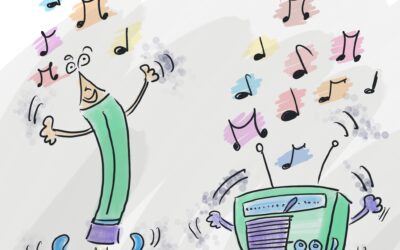Creating your version of freedom fund
Life is short! You live only once! So go and follow your dreams.
This can sound like magical thinking to some of us, especially if we are not in a position to drop things and go and follow our hearts. There are bills to be paid, loved ones to care for and other practical things to do. But it does not mean you give up on living or following your dreams or discovering new dreams, even if you are chronically ill and support yourself/your family financially.
It came into keen focus for me as I grappled with limited mobility, low energy and other health issues that I would want to go out and do my own thing, for once. But I wasn’t sure or confident about 3 things.
1) What do I want to do?
2) Can I afford to do it?
3) Do I have it in me to go out on my own?
Answering the first and the third questions was difficult. I did not know the answer. Question number 2 seemed to be the only “objective” question with a yes or no answer. I instinctively answered, no.
Then I paused and asked myself, “How do you know you can’t afford it?” I didn’t know what it would take to afford to go out on my own. I simply did not know. So I flipped question number 2 to, “How can I make sure I can afford it?”
The answer, after going down a rabbit hole of personal finance books (I have read around 30 books on this topic and consumed a multitude of podcasts and blog posts), I came across an interesting concept called “Fuck You Fund”.
A “Fuck You” Fund lets you walk out of any situation where staying it in is no longer constructive for your being – either in terms of physical, emotional or psychological safety. So many people stay in environments or people that are traumatic and injurious to their being because they can’t “afford” to walk away.
Having a “Fuck You” fund means you can “afford to” walk away from situations
I expanded this concept to three levels that were helpful for me to create financial independence, leave the corporate job (golden handcuffs and all), and start my own heart-centred business.
The three levels are
1. Fuck You Fund
2. Sabbatical Fund
3. Freedom Fund
Level 1: Fuck You Fund
This amounts to 1-3 months of living expenses. If you do not track your expenses to the last penny or even broadly, you might wonder how much money that is. The next month, you receive your salary, put it in an account, and look at how much money is left at the end of the month. Make sure there are no other inflows to this account.
You can do it for a month, or two or three, and you will get an idea of your living expenses. If you are doing it for the first time, you might be shocked when you see how much money is spent on monthly expenses. At your current spending level, keep aside one month of living expenses. Slowly grow it to 3 months.
There, you have your Fuck You Fund, which lets you have the option of walking away. Having this option doesn’t mean you have to exercise it. Still, it offers an enormous amount of psychological safety to know that you can walk away from a situation and not stay in it because you don’t have the financial means to do so.
This is crucial if you are working while chronically ill because everyday stressors can exaggerate your health and symptoms. If stress at work continues to be high or chronic, you would want the option to walk away if things don’t turn around. It is not worth trading your health for money, and having the financial means to walk away is helpful.
Related read: How to Find the Right Life Coach in India
Level 2: Sabbatical Fund
When I marked 16 years of working, I realised I had never taken extended time off. By the 16th year, I was tired physically, mentally and emotionally. My health was taking a nose dive, and I wanted to have a few months off from work. I did not want to resign (I couldn’t afford to!) but wanted to take a sabbatical.
I wouldn’t be earning during the sabbatical period, so I needed to ensure that I had 6 months’ worth of living expenses in the bank. My sabbatical fell right in the middle of the COVID-19 pandemic. I started my sabbatical in July 2020 until the end of the year. I wanted to go backpacking in Europe for my break, but the pandemic and fibromyalgia ensured that this wasn’t happening.
But in preparation for the sabbatical (preparation time was two years), I had set aside six months of living expenses and some money for travel. Instead, I was able to use this fund to move to better living conditions, attend workshops, furnish my new house and give myself more comfort than I did not before.
A sabbatical fund can be between 6 months to 5 years of living expenses, depending on what works best for you. You can use the sabbatical fund to take a break, start a new business, travel, recuperate, or get treatments done to improve your health. The Sabbatical Fund ensures that you have time at your disposal for whatever duration you choose.
I learnt Tai Chi during my Sabbatical and trained as a Mindfulness Facilitator during this period, both of which improved my life and health. The mindfulness facilitator training led to a significant career shift as a Community Manager for my bank’s award-winning mindfulness program two years later.
If you have built up your Fu*k You Fund, you can start working on your Sabbatical Fund. Start with 6 months, 9, 12, 15 and go on for whatever period you want a sabbatical.
Level 3: Freedom Fund
This Freedom Fund is my ultimate financial goal, where I can accumulate enough of a corpus so that I don’t have to worry about money forever and can do whatever I want! This is not as unrealistic as one thinks. This is, in essence, what we traditionally think of as retirement. A Freedom Fund is your Retirement Fund.
There is a concept called FIRE – Financial Independence Retire Early. If you know your FIRE number, you can work towards accumulating that corpus. When you reach that corpus number, you can leave your job and live off by withdrawing a certain percentage.
Dear reader, if this interests you, I can explore how I will do this in future articles.
What happens when I have emergencies?
This is a question that would come up for me when I started funding my Fuck You Fund and Sabbatical Fund. After looking at my expenses and realising I couldn’t get a mathematical model of predicting my emergency expenses, I have kept aside 15% of my annual expenses in a separate fund called “Emergency Fund” that helps me deal with emergencies. Mostly health-related. If I have a test or a treatment I need to take, then the emergency fund helps me deal with it.
In summary, levelling up your savings game into a goal-oriented game to create your levels of freedom can be empowering if you are working when chronically ill and would like to have the option to take a break to focus on yourself.
Write to Me!
This article could spark questions, so if you have any, drop me a note, and I’d be happy to consider addressing them in future articles.
This article is the continuation of my 30-part series on Chronic Illness and Work. If you are not subscribed, do so here. When you subscribe, you will receive the series as and when it is released in your inbox.





